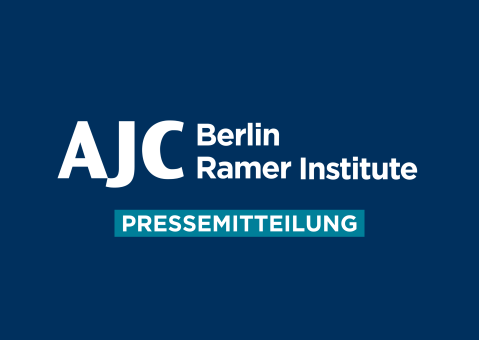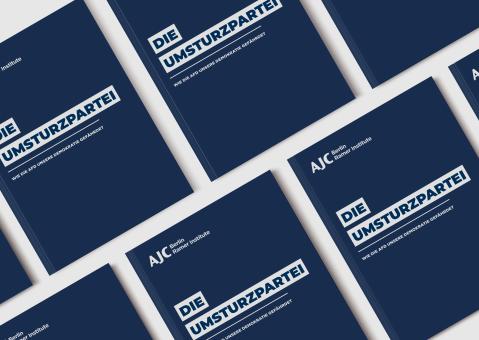Teilen auf
In the dramatic sweep of events in the Mideast the past few weeks, little attention has been focused on Iran. Yet two photos dominated the front pages of German newspapers this past weekend. One showed Guido Westerwelle, Germany’s Foreign Minister, shaking hands with Iranian President Mahmoud Ahmadinejad; the second showed cast members of the Iranian film Nader and Simin, A Separation, accepting the Golden Bear award of the Berlinale Film Festival.
These images could easily create the impression that Iran is making giant leaps toward acceptance in the democratic world. On the political front, Iran’s president was able to greet a high-level German official for the first time in seven years, while culturally, a film produced in Iran swept the top honors at one of the world’s leading film festivals.
Nothing could be farther from the truth. Foreign Minister Westerwelle flew to Iran on short notice to pick up, in person, two German journalists who had spent four months behind Iranian prison bars before bilateral negotiations and a large public outcry in Germany convinced Iran to commute their sentences to large fines. The ostensible “crime” of the two journalists was neglecting to inform Iranian authorities that they were trying to interview the son and lawyer of a woman sentenced to death by stoning for alleged adultery and murder, a case that prompted worldwide protest against human rights violations in Iran.
The Golden Bear award went to an outstanding Iranian film that manages to circumvent artistic restrictions and demonstrate the deep fissures in Iranian society, and the presentation was all the more poignant because of an empty seat left in the row of jurors for Jafar Panahi. He is one of two dissident Iranian film producers recently sentenced to six years in jail and barred for twenty years from producing films. His alleged crime? Propaganda against the system. Both the opening and closing ceremonies of the Berlinale were marked by a wave of solidarity with Panahi and his Iranian film colleagues.
The critical message emanating from both these events is that there is no freedom of expression in Iran. In 2010, Reporters without Borders’ country ratings for freedom of speech listed Iran as 172nd out of 175 countries. Those who transgress the bizarre ideological code imposed on Iranian society suffer severe consequences, ranging from a ban on work to imprisonment and torture.
This is not new. Recall the crushing suppression of large-scale demonstrations in Iran in the summer of 2009, accompanying the inauguration of President Ahmadinejad for a second term. Government security forces quickly shut the window of hope briefly opened by demonstrators, forcefully clamping down on Internet, Facebook and Twitter, using Nokia-Siemens surveillance technology to hunt down citizens who dared lend their presence to a nascent democracy movement. Hundreds of peaceful protestors were imprisoned.
This time, though, the message resonates in a world that is fundamentally different from just six weeks ago. Generation Facebook has emerged, united across borders in demands for dignity, decency, development and democracy. The bravery of demonstrators in Tunisia and Egypt demanding their civil and human rights renders far more tenuous the reign of authoritarian leaders like Gaddhafi and Ahmadinejad. The demonstrators say no to the virtual enslavement of entire nations, whose development has been stunted for decades to serve the interests of small ruling cliques with absolute power.
Not surprisingly, given the threat to the status quo across the Arab world, some regimes are following the Iranian example and clamping down on electronic technology, hoping to stifle the emerging protest. But as we have seen in Tunisia and Egypt, the spirit of freedom broadcast worldwide through global technology can no longer be suppressed. Perhaps it is not just a dream to believe that the days are numbered for repressive Mideast governments that rule through surveillance, terror and torture.
As unrest percolates across the region, the question is how long well-educated Iranians – particularly the young generation - will continue to tolerate a government that manipulates and controls its citizens. As for Iran’s interlocutors, how long will the international community continue to tolerate a belligerent regime reaching for nuclear power to threaten Israel, assert regional power and destabilize neighboring countries?
It took until October 2010 for the European Union to pass far-reaching economic sanctions against Iran, in belated recognition that the so-called critical dialogue with Iran so long favored by the Europeans had failed. Not surprisingly, European trade levels with Iran last year went up and not down in most countries.
As the democratic surge sweeps the region, this is surely the time to increase pressure on the bellicose Iranian regime and stop the hypocrisy of trading and negotiating with a country that eschews civil and human rights and threatens its neighbors.
Here is an historic opportunity to stand up to a regime that is fundamentally anti-democratic, anti-Western, anti-Christian and anti-Semitic. To quote a poster held aloft by an Egyptian demonstrator in Tahrir Square, “The game is over.”


